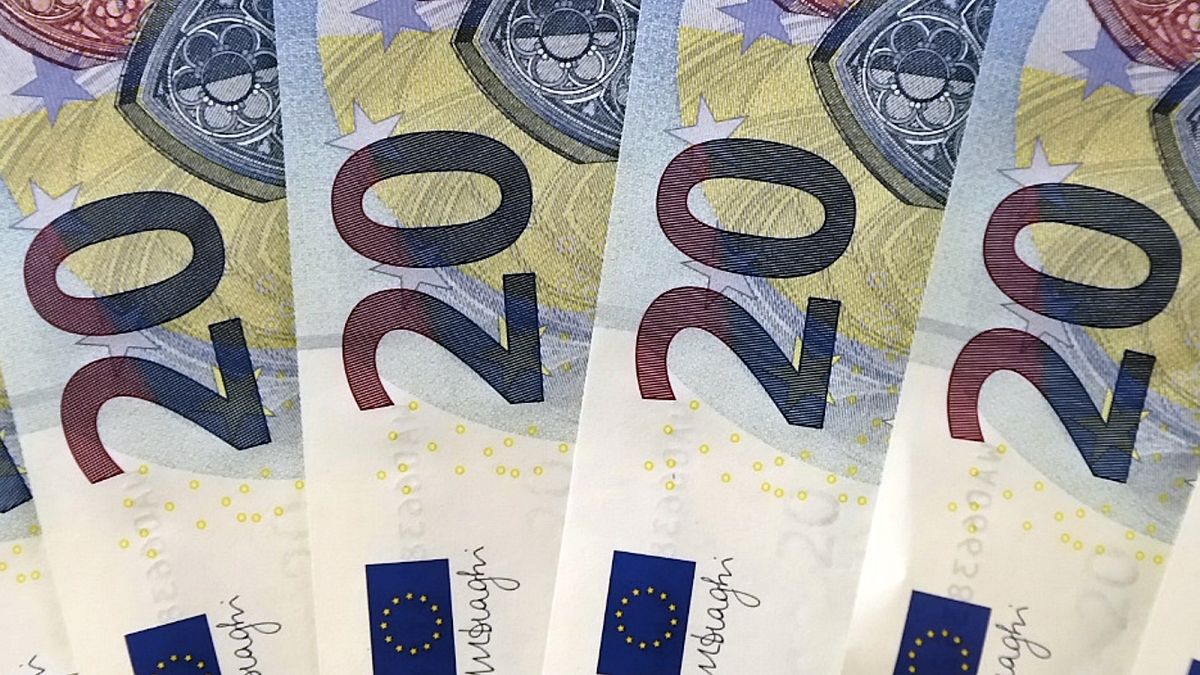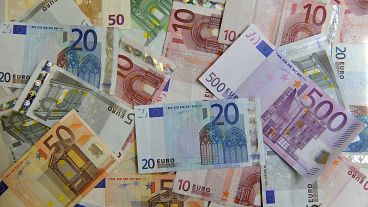Prices across the eurozone rose by 4.1% in October, up from 3.4% in September.
As Europe's economy recovers, things are getting expensive – really expensive.
The latest data from Eurostat shows inflation in the eurozone hitting 4.1% – the highest figure since the Great Recession and almost double the 2.2% annual estimation of the European Central Bank (ECB).
Annual inflation – the rate at which prices for goods and services change over time – was already high in September (3.4%), but a persistent energy crunch has sent electricity bills soaring, driving up along the way all kinds of products and services.
In October, inflation for energy reached a stunning 23.5% (up from 17.6% in September on an annual basis). The European Commission expects energy costs to remain high until March or April, when temperatures increase and electricity consumption from heating decreases.
The hike in prices is uneven across eurozone members: the highest numbers are registered in the Baltics (8.2% in Lithuania, 7.4% in Estonia and 6% in Latvia) while Malta (1.4%) and Portugal (1.8%) are the only ones below the 2% threshold. Germany, Europe's largest economy, is hit by 4.6% inflation.
Prices across the 19-nation euro area have risen at a rapid pace since countries began lifting coronavirus restrictions and accelerating their vaccination campaigns. In January, annual inflation was just 0.9% but in May it reached 2% to then jumped to 3% in August.
The last time the eurozone broke through the 4% barrier was in the immediate aftermath of the Great Recession, in July of 2008 (also 4.1%). A slightly higher number was recorded in the early 1990s, but this was before the euro currency was introduced.
The latest inflation reading adds pressure on the European Central Bank and its president Christine Lagarde. The ECB is meant to maintain price stability and make sure that inflation remains low, stable and predictable.
"Rising energy prices, the recovery in demand and supply bottlenecks are currently pushing up inflation. While inflation will take longer to decline than previously expected, we expect these factors to ease in the course of next year," Lagarde said on Thursday, in anticipation of the October data.
"We continue to foresee inflation in the medium term remaining below our 2% targets."
Lagarde admitted inflation has become a prominent topic in the ECB's discussions, but said analysts were wrong if they thought the bank was going to raise interest rates as a response.
Interest rates in the eurozone have been negative since 2014, a policy introduced by Lagarde's predecessor, Mario Draghi, as a response to sluggish inflation following the European debt crisis.
When inflation grows, interest rates are expected to follow suit. Those who lend money demand higher rates to ensure they don't lose value when borrowers pay them back in the future.
For the time being, Lagarde refuses to change course and will keep negative interest rates in place to help consumers and businesses borrow money more cheaply and, in turn, maintain the momentum of the economic recovery.
New data released also on Friday showed that, in the third quarter of 2021, the eurozone grew by 3.7% compared with the same period in 2020, while the whole EU did so at a 3.9% rate.
But the energy crisis threatens to derail the thriving recovery. The EU internal market operates on a marginal pricing system that links the overall cost of electricity with the price of natural gas, the source most often used to meet the total power demand.
"The energy issues are very important. We see that about half of the inflation that we are currently experiencing in Europe is cause directly by higher energy prices through both fuel prices that have hit records and, of course, through the recent surge on gas prices as well," Bert Colijn, a senior economist at ING bank, told Euronews.
"At the same time, we also see the prices from goods have started to rise as shortages of inputs and problems with containers globally have pushed up prices for producers which are now gradually being passed into consumers."
High inflation is not a problem exclusive to the eurozone. Other advanced economies are too grappling with increasingly expensive goods and supply chain disruptions: in the United Sates, inflation has been hovering over 5% since May. In Canada, the latest reading showed a 4.4% rate, while in the United Kingdom, the figure stands at over 3% – more than triple the January records.
Although central bankers continue to insist high inflation is temporary and a logic consequence of the abrupt recovery, there are growing fears among policymakers, investors and companies that the hike could be prolonged and even become permanent.
"It's very difficult to tell if that's going to be the case or not," said Colijn, who noted that stubbornly high inflation could overshadow all the recent improvements in GDP growth and employment.



